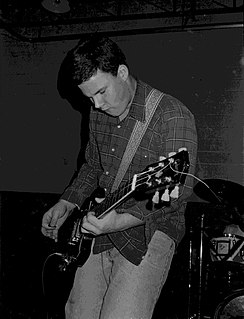A Quote by Harold Bloom
What is literary tradition? What is a classic? What is a canonical view of tradition? How are canons of accepted classics formed,and how are they unformed? I think that all these quite traditional questions can take one simplistic but still dialectical question as their summing up: do we choose tradition or does it choose us, and why is it necessary that a choosing take place, or a being chosen? What happens if one tries to write, or to teach, or to think, or even to read without the sense of a tradition? Why, nothing at all happens, just nothing.
Related Quotes
The emergence and blossoming of understanding, love, and intelligence has nothing to do with any tradition, no matter how ancient or impressive-it has nothing to do with time. It happens on its own when a human being questions, wonders, inquires, listens, and looks without getting stuck in fear, pleasure, and pain. When self-concern is quiet, in abeyance, heaven and earth are open.
We may be thankful that frightened civil authorities ... have not managed to eradicate from the country the tradition of the possession and use of firearms, that profound and almost instinctive tradition of Americans. Luckily for us, our tradition of bearing arms has not gone from the country, the tradition is so deep and so dear to us that it is one of the most treasured parts of the Bill of Rights - the right of all Americans to bear arms, with the implication that they will know how to use them.
Does people not asking me about Asian American literature mean they don't see it as its own literary tradition? I certainly believe in it as its own literary tradition, because your race plays a great factor in how you are seen by the world, and how you see the world; the fact that I'm an Asian American isn't incidental to who I am as a writer. Where it becomes difficult is defining what, if anything identifiable at all, makes an Asian American book an Asian American book, other than the fact of its creator being Asian. And I'd argue that there is nothing identifiable beyond that.
The question of art songs always came up with Gastr del Sol. I think Jim O'Rourke had it right in being clear that there's a tradition of art song - Ives being the touchstone for the two of us - and what we do doesn't belong to it. It wasn't important to advance those kinds of distinctions, but clearly he thought it was fanciful for anyone to speak of what we were doing as being in that tradition.
The urge to break with a tradition is only appropriate when you're dealing with an outdated, troublesome tradition: I never really thought about that because I take the old-fashioned approach of equating tradition with value (which may be a failing). But whatever the case, positive tradition can also provoke opposition if it's too powerful, too overwhelming, too demanding. That would basically be about the human side of wanting to hold your own.
Tradition is only democracy extended through time; it may be defined as an extension of the franchise. Tradition means giving votes to the most obscure of all classes, our ancestors. It is the democracy of the dead. Tradition refuses to submit to the small and arrogant oligarchy of those who are merely walking about. All democrats object to men being disqualified by accident of birth; tradition objects to their being disqualified by accident of death. Democracy tells us not to neglect a good man's opinion, even if he is our father.
We approach Scripture with minds already formed by the mass of accepted opinions and viewpoints with which we have come into contact, in both the Church and the world....It is easy to be unaware that it has happened; it is hard even to begin to realize how profoundly tradition in this sense has moulded us.




































